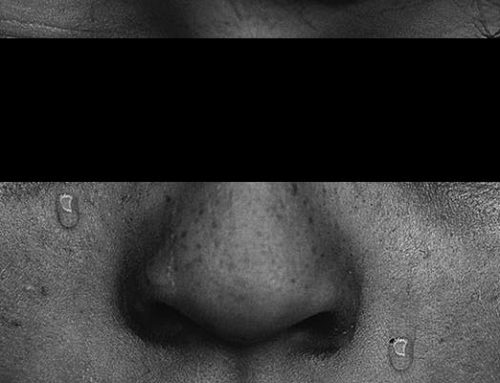By: David G. Bayliss , December 17, 2010.
This article is written as a basic informational tool for the layperson with limited or no legal training. It deals with the consequences and potential consequences for persons eighteen years or older against whom a crime of sexual assault is alleged. Different rules apply for defendants under the age of eighteen. Any opinions expressed here are those of the author, a lawyer called to the bar of Ontario in 1984, who has practiced exclusively criminal defence work since that time.
The subject is approached from the perspective of a person charged with a sexual assault crime in Ontario. As a defence lawyer having represented hundreds of such people, this perspective is all too familiar to me. Shock and disbelief at the process is the most common reaction of such defendants.
Firstly, it is necessary to understand that the nature of the criminal allegation that is made radically colours the nature of the police investigation that follows. While “tunnel vision” can infect any investigation, it is for the most part true to say that a police investigation will at least attempt to determine:
(a) if a crime has occurred and
(b) once a crime is established, who committed it.
With certain allegations however, notably allegations of domestic assault or sexual assault, no such investigation takes place. Once an allegation of sexual assault is made, no matter how dubious the claim or the character of the person making it, the truth of the allegation is almost invariably assumed by police investigators. The “investigation” that follows will consist of a process of gathering evidence to support the allegation, rather than gathering evidence to determine if the allegation is true.
Why is this? Simply, the pendulum has swung from a time when allegations of sexual assault were not treated with sufficient gravity. In the justice system’s efforts to correct past shortcomings, the pendulum has crashed through previously inviolable principles of criminal justice designed to protect the innocent. In many ways, the mantra of complainant sensitivity now trumps the presumption of innocence, the right to face one’s accuser in court and the right to full and fair cross examination of that accuser.
An overpowering environment of political correctness coupled with official directives to police officers and Crown attorneys prohibits probing questioning of sexual assault complainants. Similar directives preclude police officers from exercising discretion in the laying of charges and prosecutors from exercising discretion in whether or not to proceed with cases once they arrive in court. Remarkable changes to court procedures and evidentiary rules further complicate the path for any person accused of this type of allegation.
Complainants frequently testify from behind privacy screens or by closed circuit television so as to not be required to look at the defendant while testifying. Limitations on access to information about complainants and previously unheard of restrictions on the right to cross-examine them, threaten to prevent defence lawyers from getting at very relevant information during the trial. The most shocking example of this approach is the rule, first established by the Supreme Court of Canada and now encoded in the Criminal Code of Canada, that a sexual assault defendant is precluded from adducing evidence of prior sexual activity between him or herself and the accuser.
Any complainant under the age of eighteen is not required to repeat the allegation in court, rather, his or her video –taped statement to the police is played in court and constitutes the evidence on the matter. This procedure overrides a centuries old recognition on the part of police investigators, advocates and judges, that the most elemental test of reliability is the ability of the accuser to repeat the allegation with consistency. The procedure entirely eliminates the concept of “prior inconsistent statements” as a means of assessing truthfulness .
Moreover, courts have consistently ruled that the evidence of children is to be subject to lower standards of credibility assessment than those used to assess adult witness testimony. While few would argue that young children justly require such accommodations, there is a startling inability or willingness on the part of legislators, appellate courts interpreting legislation, and some trial judges, to distinguish between the cognitive abilities of children and young adults. Incongruently (and dangerously), a seventeen year old complainant usually receives precisely the same evidentiary protections and testimonial accommodations as a much younger child.
Prosecutors frequently opine that, because such events usually occur in private, they are difficult to prove as they are dependant on the credibility of the respective actors—the classic “he said she said” situation. It should not be forgotten, however, that such allegations are easily made and often challenging to defend for precisely the same reasons. The present criminal justice legislative structure and judicial mindset, unfortunately, favours the false accuser in at least equal measure to the true victim.
BAIL IN SEXUAL ASSAULT CASES
It is in the context of an application for bail that the sexual assault defendant must be prepared for a rude awakening. In some jurisdictions prosecutors, too often sheepishly followed by supposedly objective jurists deciding if bail should be granted, take the position that all allegations of sexual assault call for a bail release which confines the defendant to his own home at all times unless accompanied by his or her surety. Notoriously, in one Ontario jurisdiction, bail is routinely denied in sexual assault cases unless the defendant agrees to this form of release—even in cases where the defendant has no prior criminal record.
In jurisdictions where a more reasonable approach prevails, the sexual assault defendant must still be prepared to abide by stringent release conditions. If the allegation is made in the context of one’s own home, be prepared to find somewhere else to live. If the allegation is made in the context of the work place or school environment, be prepared to find other work or schooling or, perhaps, stop both before bail will be granted. Bail conditions precluding the defendant from attending licensed establishments or being alone with members of the opposite sex (or same sex in same sex allegations) are routine.
In today’s criminal justice milieu, a mere allegation has the potential to turn the defendant’s life upside down. While lip service is paid to the guiding principle of criminal justice, the presumption of innocence, the person accused of sexual assault is well justified in perceiving that an assumption of guilt motivates the judicial process in which they find themselves ensnared.
PRIVACY
In any sexual assault trial, an order will be made prohibiting the publication of any information which could reveal the identity of any complainant or witness in the case. No such right exists for the defendant.
On conviction, the convict will be ordered by the court to register with the national sexual offender registry established by the federal Sex Offender Information Registration Act. One’s name remains on this register for a minimum of ten years and a maximum of life. There is a limited discretion in the trial court to exempt from registration if the impact on the convict is “grossly disproportionate to the public interest in protecting society through the effective investigation of crimes of a sexual nature”. The granting of the exemption is exceedingly rare.
Every criminal allegation results in the creation of a record of the charge in various police data bases such as the Canadian Police Information Centre (CPIC). This record of the charge is a permanent one. Subject to very limited legislated exceptions, various police agencies have differing and unregulated policies with respect to whether and what they will disclose to potential employers or other agencies requesting disclosure of the records of an individual.
Certain types of criminal records searches, such as a Vulnerable Persons Search, will retrieve unlimited information about the subject of the search including the fact that charges were brought even when the result was an acquittal or the charges were withdrawn. The Ontario Court of Appeal recently ruled (in Tadros v. Peel Regional Police Service [2009] O.J. No. 2158—leave to appeal to the Supreme Court of Canada denied) that withdrawn charges may be disclosed to the potential employer as long as the applicant consents to the search on the employment application form.
One can well imagine the chances of employment if the job applicant refuses such consent. There is no legislation in existence or contemplated which precludes the disclosure of acquittals or withdrawn charges. Nor is there legislation which prevents potential employers from seeking inappropriate disclosure from applicants. Thus, it is not uncommon to find questions on job application forms such as “have you been charged with or arrested for a criminal offence?”
Simply put, a false allegation of a sexual nature has the very real potential to destroy one’s career, even where the falsity of the allegation has been demonstrated in court. This stark fact has the implicit support of legislators and the highest court in the land.
© David G. Bayliss, December 17, 2010.







